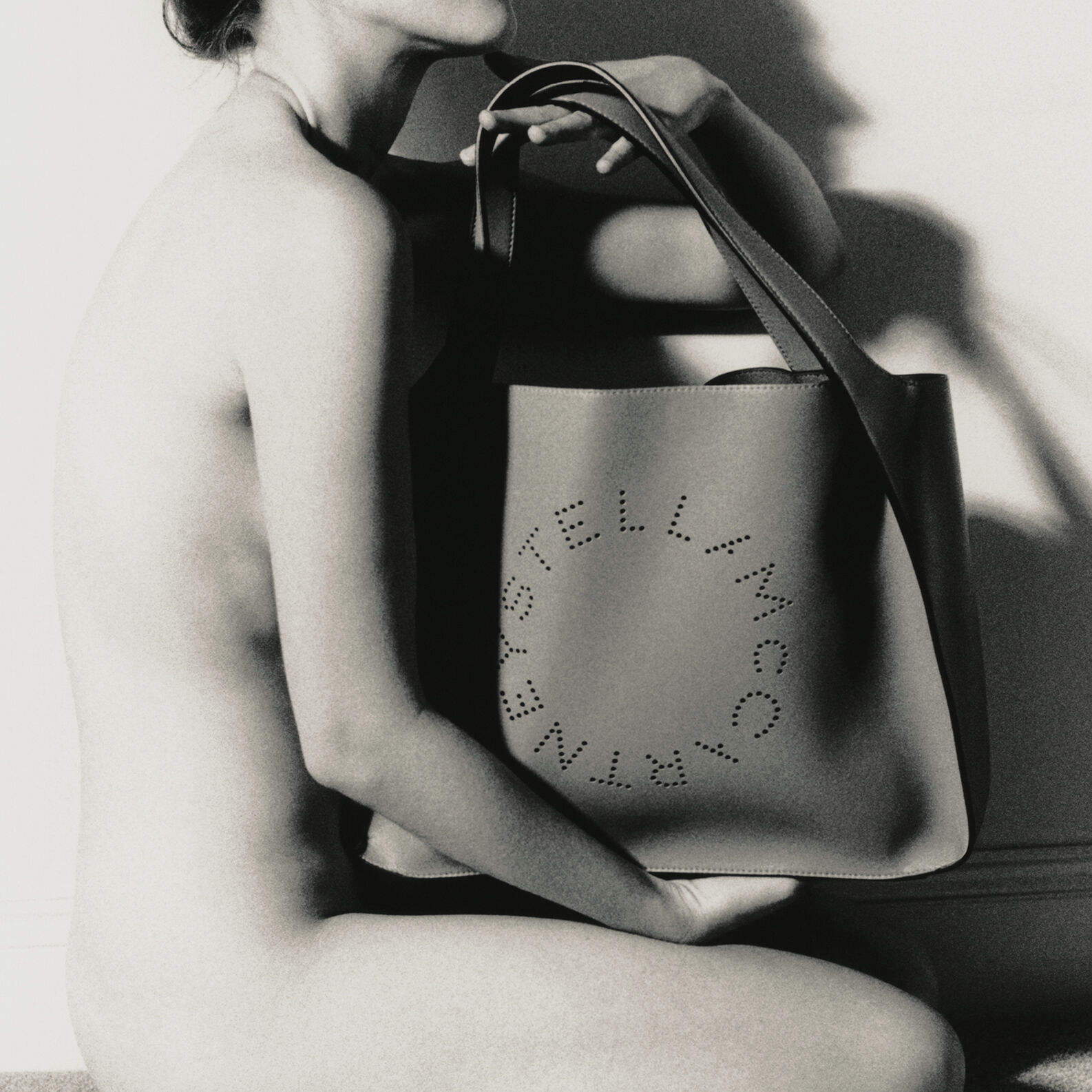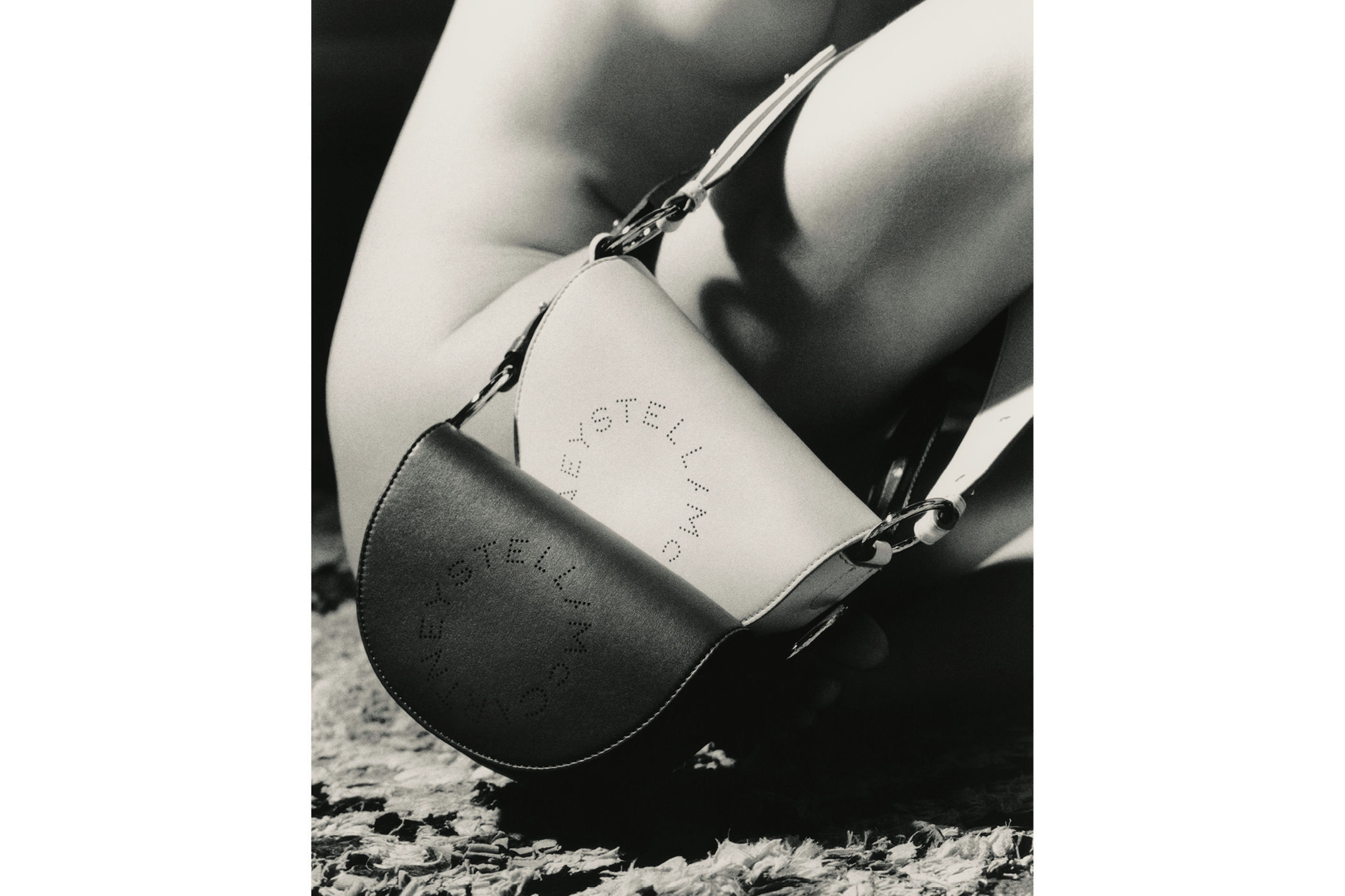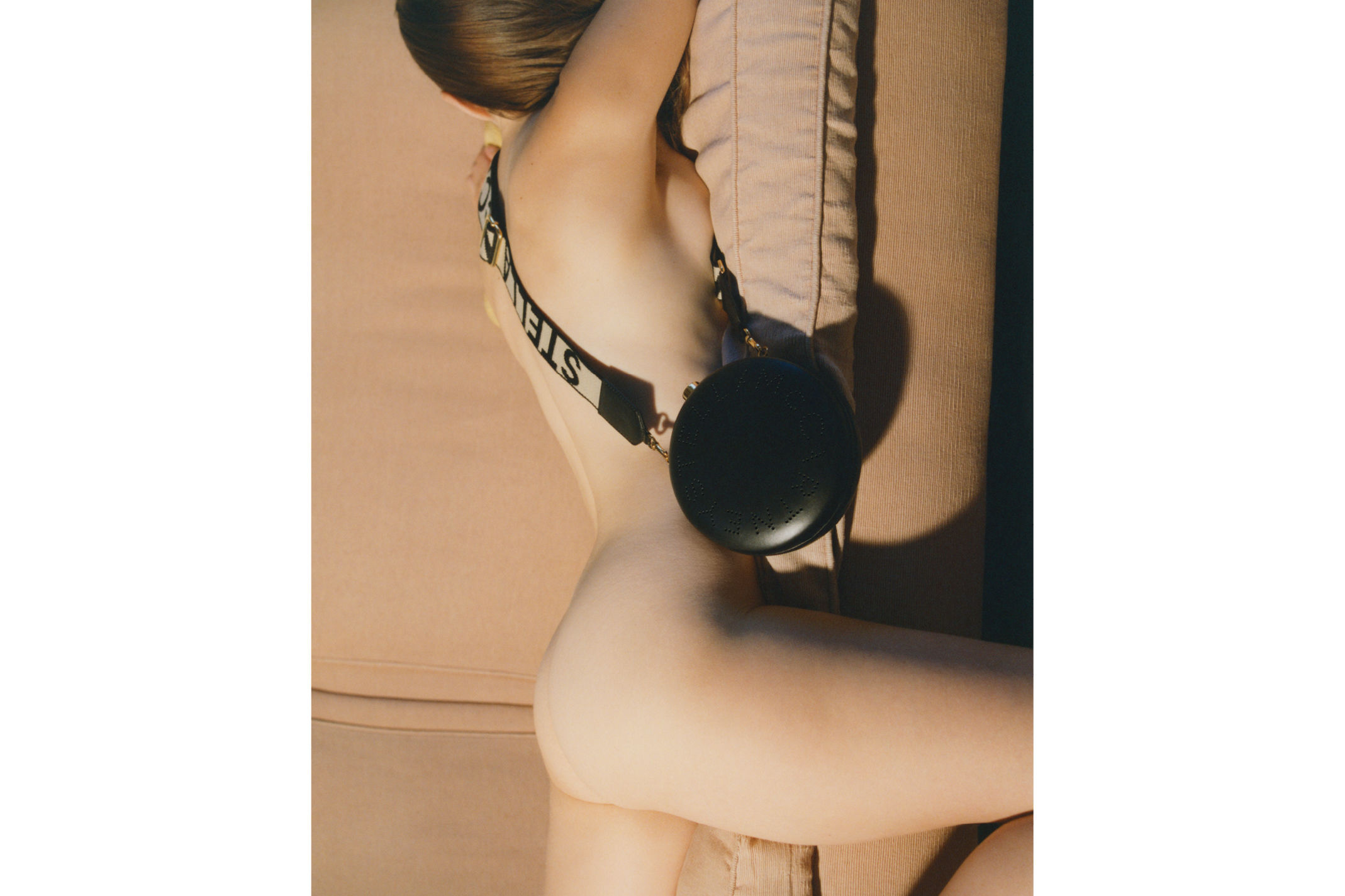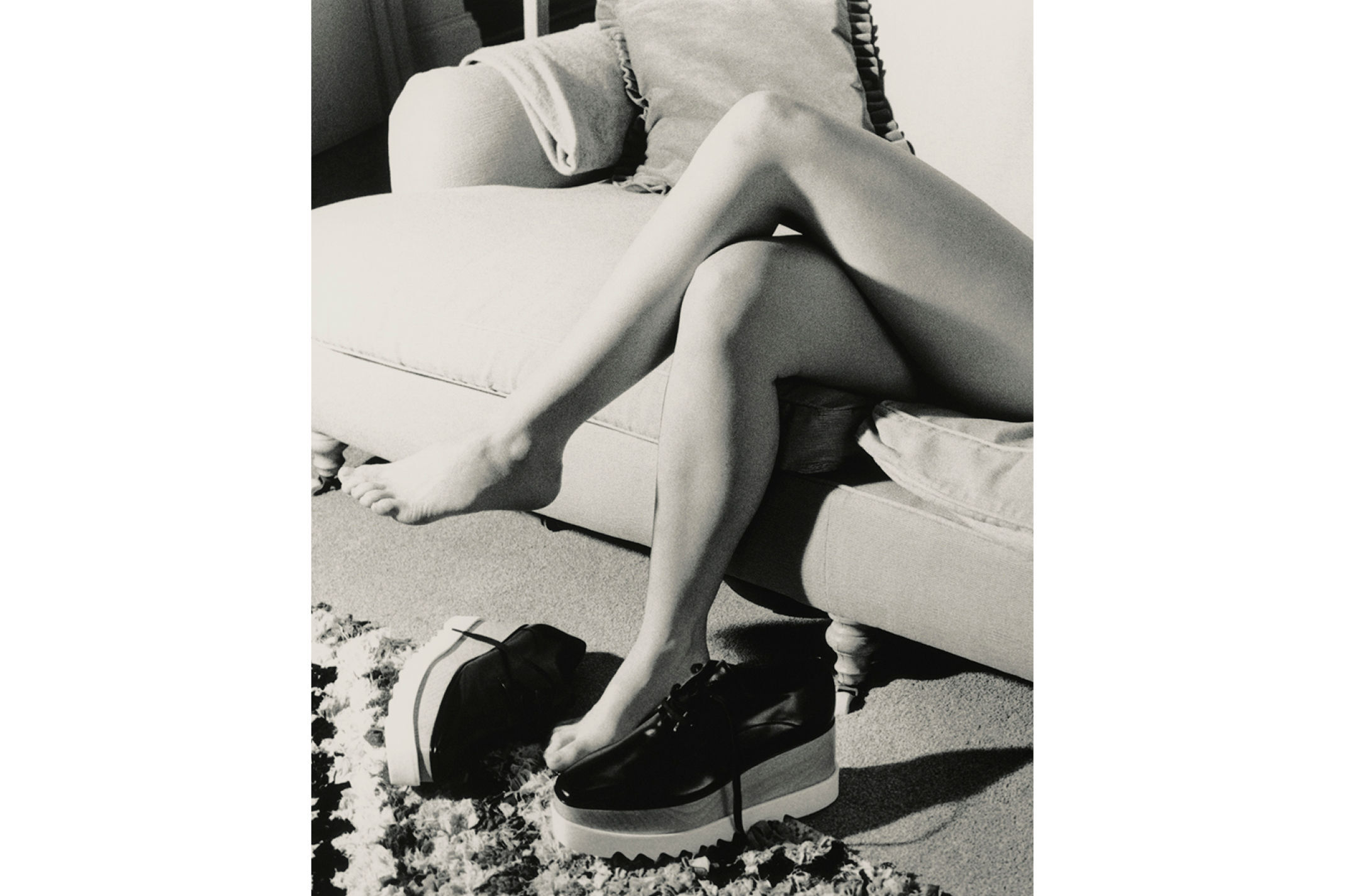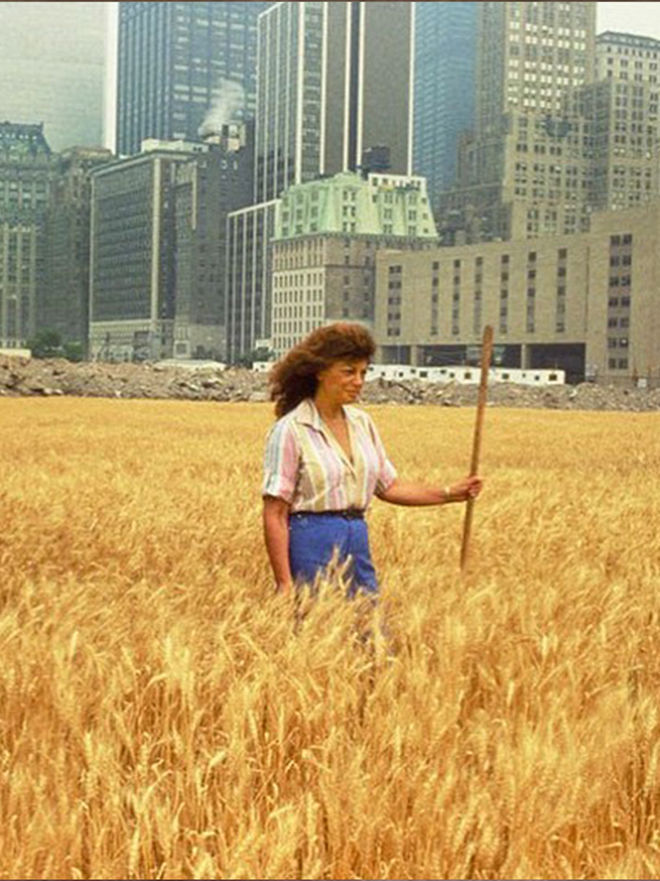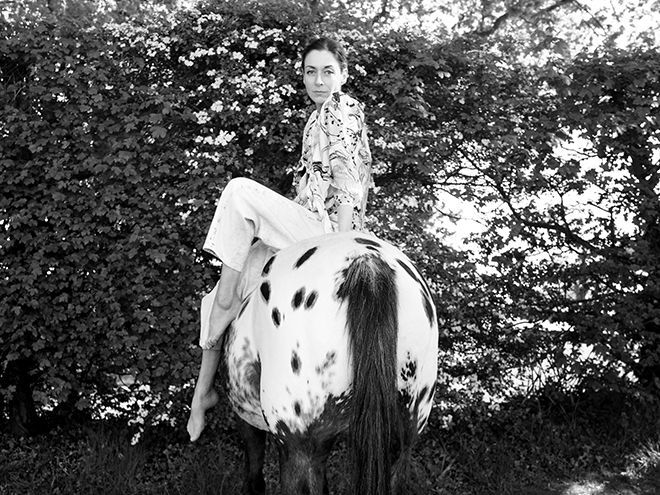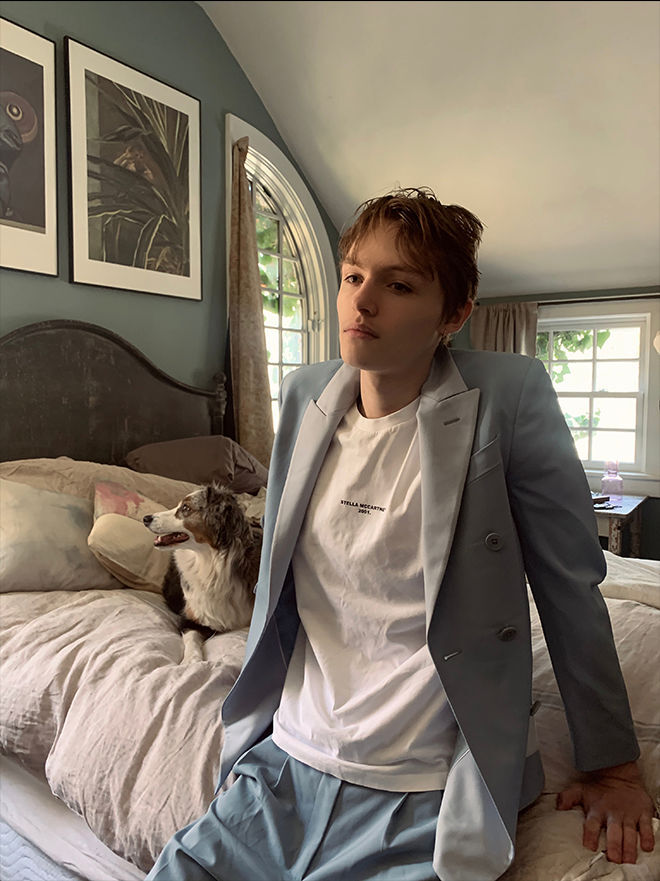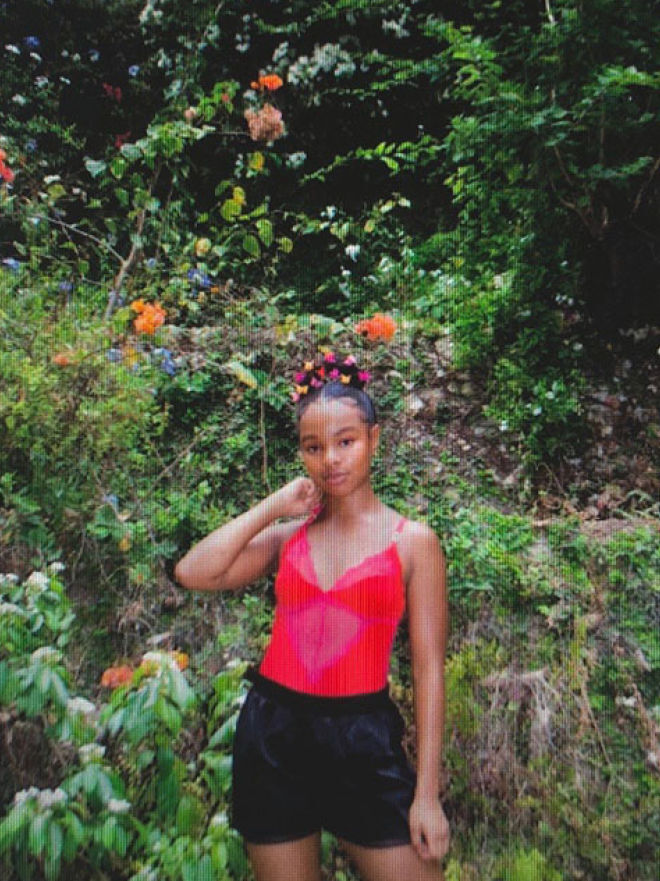London-based photographer and director Daisy Walker’s work brings the female gaze into focus – reclaiming and creating space in our culture long dominated by male perspectives. She captured a series of self-portraits during lockdown, nude save for a select edit of Stella McCartney vegan bags. As nature intended.
Daisy’s work frames bodies and objects through an intimate lens, often broaching discussions around feminism and the environment; art meets activism. She also founded Women in Fashion (WIF) – a non-profit organisation that brought female creators together for conversations to affect change in the industry.
In that tradition, we had a conversation with Daisy Walker about women in fashion, the female gaze in photography and what is next for her.
WE SAW WOMEN IN FASHION CLOSED LAST MONTH DURING LOCKDOWN. HOW HAS THE FASHION INDUSTRY GOTTEN BETTER FOR WOMEN SINCE YOU STARTED IT?
When I started WIF in 2015, feminism was still a dirty word, diversity wasn’t even a topic and everyone was afraid to speak out about everyday inequalities within the fashion industry. Now, I’m proud to see that brands know they can no longer get away with all-white casting and female photographers have been given the recognition they’ve always deserved. WIF was a crucial part in redefining the culture of community amongst women within the fashion industry and I hope that only grows.
WHY DO YOU THINK FASHION IS A POTENT MEDIUM FOR FEMALE ACTIVISM?
Fashion has historically been a medium led by men to define women. It’s a medium that has defined and instilled limiting beauty expectations and female stereotypes through a male gaze. It’s ripe ground for redefining those tropes with a female gaze; claiming back the body and redefining ourselves as women by women for women. As an industry which is also a prime polluter of the environment, it’s also a key area to be vocal about the drastic need for environmental reform both in daily habits and in legislation.
STELLA MCCARTNEY HAS BEEN A FEMALE-LED, ENVIRONMENTALLY CONSCIOUS BRAND SINCE DAY ONE. WHAT ARE YOUR THOUGHTS ON OUR MISSION?
The environment is a key point that flows through my work and the way I live my life. The fashion industry CAN adapt and work with the environment instead of against it, and Stella has championed that from the very beginning. We have to address our choices, from the clothes we buy to the food we eat, which is why I was so excited to shoot the vegan bags.
WHAT WAS YOUR CREATIVE VISION BEHIND THIS SHOOT?
I started shooting nudes as a means of expressing physical trauma. It was a way to learn to fall in love with my own body and started to create a new connection to the way I treat my body and its environment. I think for a lot of people in lockdown, they too have become more aware of their bodies and the impact of lifestyle; the food we eat, the company we keep. I wanted to embrace that and the simplicity of shooting my own body in my own home with the help of my partner.
IN PHOTOGRAPHY, HOW DOES THE FEMALE GAZE DIFFER FROM THE MALE GAZE?
Until recently, the only gaze readily available was the male gaze – historically female photographers rarely garnered much interest from galleries or elsewhere, as is the case in all areas of art and culture. The male gaze has importance as men find a way to redefine masculinity. The female gaze comes from a place of revolution against the image that had been created for us for hundreds of years.
WHAT DO YOU LOVE MOST ABOUT PHOTOGRAPHING THE FEMALE FORM?
There’s a simple beauty in the body; its functions, its shape. All bodies are different and our relationships to them can be very complex. I’ve found so much beauty in photographing other women’s bodies, and so much respect in photographing my own. As a woman, it’s a battle to learn to love the body you have and photographing female bodies feels like winning that battle.
SPEAKING OF BATTLES, RACIAL JUSTICE IS A HUGE TOPIC OF DISCUSSION AT THE MOMENT. HOW DO YOU THINK THE FASHION INDUSTRY CAN BETTER SUPPORT WOMEN OF COLOUR?
Fashion has always dealt with the issue of diversity as an issue of casting, and it’s certainly one element. But the industry can never be truly diverse unless the teams working behind the scenes are diverse themselves. As a photographer, I’m used to relying on my usual team, but I acknowledge I need to look outside of that to ensure my team is diverse. We all need to do much better.
WITH SYSTEMIC IMPROVEMENTS STILL NEEDED, WHAT CAN YOUNG WOMEN IN FASHION DO TO EMPOWER THEMSELVES?
The WIF slogan has always been ‘Provoking change through conversation’. Organise a Zoom with like-minded people and host a discussion. Share books you’ve read and key facts you’ve found illuminating. Use this time to think about what your part is in all of this and how you can define your small pool of influence. Every small effort has an impact, you just have to look at the thousands that have turned up to Black Lives Matter protests to see that.
NOW THAT THE WOMEN IN FASHION CHAPTER OF YOUR LIFE CLOSED, WHAT WILL YOU BE DOING NEXT?
This time in lockdown has released so much in me personally and allowed space for me to start to make work that really says something. The body, the environment – these are things that I’m deeply connected to and excited to have the time to explore in personal projects. No fluff. I want my values to flow through everything!
